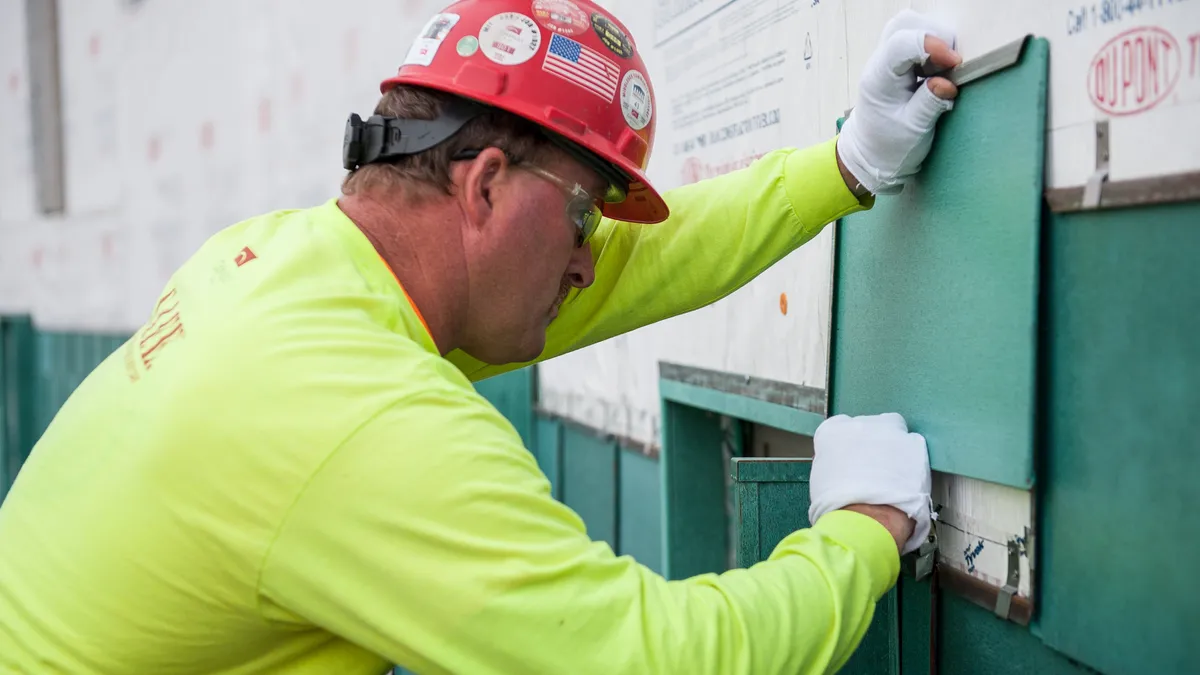The average time U.S. construction professionals spend on rework, conflict resolution and looking for project data — issues that can be avoided with improved communication and data management — is costing the industry more than $177 billion annually, according to a new report from PlanGrid and consultancy FMI Corp.
Out of 600 professionals surveyed for the “Construction Disconnected” report, 336 work in commercial construction, and of the total number of respondents, 49% are general contractors, 36% are in the specialty trades and 15% are owners or developers.
Respondents spend 65% of their time on “optimal” activities that keep project execution on track, which can include communication with stakeholders and optimization of jobsite resources and labor.
The remaining 35% is spent on activities the survey calls “non-optimal” tasks such as hunting down project information, resolving conflicts, and dealing with mistakes that require rework. That translates to more than 14 hours lost per person each week, the report found, or almost two full working days that could be better spent accomplishing “optimal” tasks.
Improving time efficiency
On average, respondents said they spend five-and-a-half hours per week looking for project data like revised drawings, material cut sheets and more; almost five hours managing disagreements between project stakeholders; and nearly four hours assessing mistakes that require rework to determine their cost and cause.
The PlanGrid and FMI report also highlights some of the reasons these “non-optimal” issues spring up. Poor communication — which could be caused by unresponsive team members, ineffective stakeholder collaboration or a lack of a common data sharing platform — accounts for 26% of rework, the survey found, and represents a potential cost of $17 billion a year. Poor project information accounts for another 22% and potential $14.3 billion in annual costs, and includes setbacks due to incorrect data, constrained access to data or an inability to easily share data between stakeholders, according to the survey.
Pete Schott, senior product marketing manager at PlanGrid, told Construction Dive that contractors who can identify and mitigate communication or data shortcomings can optimize jobsite activity across the board. “Not only do we want to reduce the amount of time spent on these non-optimal activities, but we also want to help people reduce time spent on those optimal activities,” he said. While communication with stakeholders falls in the “optimal” category, improved data sharing between a general contractor and owner, for example, can still improve efficiency and cut project costs.
Making the most of digital tools
While more than 75% of survey respondents said they provide smartphones or tablets to project managers and field supervisors, few are taking full advantage of the mobile tools available to improve efficiency and communication on the jobsite, the study found. Less than one-fifth of respondents said they use mobile devices consistently (80% of the time) as a primary way to collaborate and access project data.
The study pointed to another disconnect in the technology space — between the 52% of participants who said the needs of field staff are a top priority for tech investments and the 28% who actually seek out feedback from potential end users before buying a technology.
“Even though [respondents] are investing for the right reasons, they’re not including all of the right people in the conversation,” Schott said. “The VP of operations should be at the table there and the head superintendent should probably offer an opinion as to what his or her teams are going to be using.”













